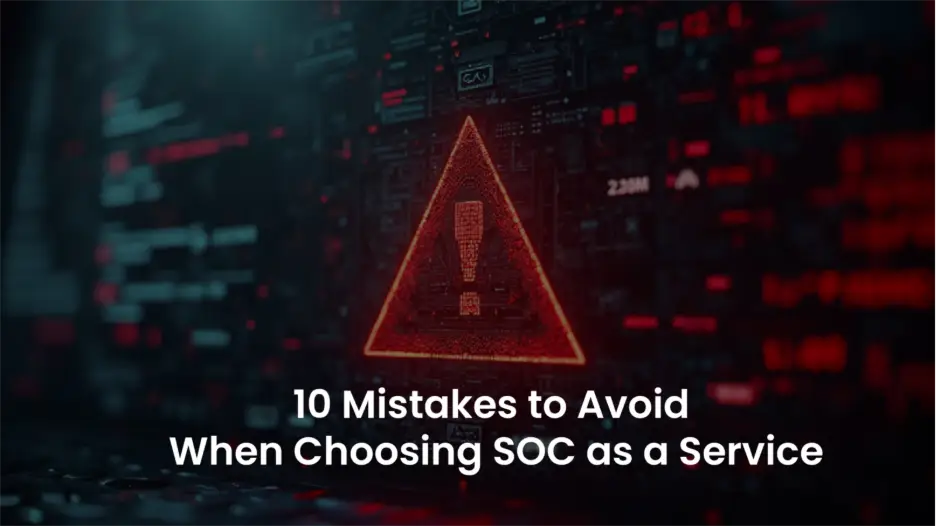Revolutionize Your Real Estate Business with Cutting-Edge Digital Marketing Approaches
Digital marketing for real estate has evolved from a mere supplemental tactic to a vital element crucial for achieving business success in today’s fiercely competitive landscape. The digital strategies you choose to implement can have a significant impact on your business trajectory and overall performance. By mastering key methodologies and applying them proficiently, you can distinguish yourself from the competition and dramatically enhance your likelihood of success. This comprehensive guide explores essential approaches designed to boost your online presence and cultivate authentic relationships with prospective clients, ultimately driving your business growth to new heights.
Maximize Your Real Estate Website’s Potential with Proven SEO Strategies

Search Engine Optimization (SEO) is the cornerstone of a successful digital marketing for real estate strategy. An effectively optimized website ensures your property listings achieve top rankings in search engine results pages, thereby attracting a broader audience. Begin this journey by conducting comprehensive keyword research to discover what potential buyers are actively searching for, such as “luxury homes in London” or “affordable flats in Manchester.” To maximize visibility, integrate these keywords throughout your website, concentrating on headings, meta descriptions, and property listings for maximum impact.
In addition, pay close attention to refining on-page SEO elements. This involves optimizing your website’s loading speed, ensuring mobile responsiveness, and implementing structured data to help search engines better understand your content. A well-organized and user-friendly website design enriches the user experience, encouraging visitors to spend more time exploring your offerings. Additionally, consider creating targeted landing pages for specific neighborhoods or property types, which can significantly increase your site’s relevance and authority in the eyes of search engines.
Equally essential are off-page SEO strategies. Building backlinks from reputable real estate websites, blogs, and local directories can greatly enhance your site’s credibility. Engaging in guest blogging or collaborating with local businesses can also generate valuable links and direct traffic to your site. Consistently updating your content and maintaining an active presence on social media platforms will further boost your online reputation, solidifying your status as a trusted authority in the real estate sector.
Craft Engaging Property Listings with Innovative Content Marketing Strategies
Content marketing plays a pivotal role in digital marketing for real estate, particularly in the creation of captivating property listings. High-quality content not only captures attention but also conveys essential information that potential buyers crave. Each property listing should narrate an engaging story, focusing not only on the property’s features but also on the lifestyle it offers. Employ descriptive language that evokes emotions and creates vivid imagery for the reader, thereby deepening their connection to the property.
Integrating high-resolution images and dynamic videos into your listings is crucial for piquing interest. Visual content is often more shareable and can substantially increase engagement rates. Incorporating virtual tours and 360-degree views allows prospective buyers to explore properties from the comfort of their homes, creating an invaluable immersive experience in a fast-paced market where convenience is paramount.
Moreover, the importance of crafting informative blog posts that resonate with your target audience cannot be overstated. Topics such as “Tips for First-Time Home Buyers” or “How to Stage Your Home for Sale” can establish you as an industry authority while driving organic traffic to your site. Regularly updating your blog with relevant and insightful content will encourage repeat visits and improve search engine rankings.
Boost Your Brand Visibility through Strategic Social Media Marketing Initiatives
Social media marketing has emerged as a critical component of digital marketing for real estate. Platforms like Facebook, Instagram, and LinkedIn offer unmatched opportunities to connect with potential buyers and showcase your properties. Each platform presents unique advantages; for example, Instagram excels at visually presenting properties, while LinkedIn acts as a vital tool for professional networking and B2B connections.
Create captivating posts that promote new listings, open houses, and current market trends to enhance your visibility. Use eye-catching visuals, including videos and infographics, to capture attention. Engaging with your audience through comments and direct messages fosters community and builds trust. Hosting live Q&A sessions or virtual open houses can further enhance interaction, allowing you to connect with potential buyers in real time.
Targeted social media advertising offers a powerful way to reach specific demographics. By defining your audience based on location, age, and interests, you can ensure your ads are displayed to individuals most likely to convert. Conducting A/B testing on various ad formats and messages will also help optimize your campaigns for maximum effectiveness.
Utilize Essential Tools and Platforms for Effective Digital Marketing in Real Estate

Implementing a successful digital marketing for real estate strategy heavily depends on utilizing the right tools and platforms. These resources can streamline your efforts, enhance efficiency, and significantly improve your marketing outcomes.
Streamline Client Relationship Management with Efficient CRM Systems
Customer Relationship Management (CRM) systems are indispensable for managing leads and nurturing client relationships within the real estate industry. A robust CRM allows you to track interactions with potential buyers, retain crucial information, and effectively manage your sales pipeline. Centralizing client data enables personalized communications, making your approach more targeted and relevant.
Many CRM systems come equipped with automated follow-up emails, task scheduling, and lead scoring features, which save time and boost productivity. For instance, you can set reminders to follow up with leads who have shown interest but have not yet made a decision. This proactive strategy can significantly enhance your chances of closing deals.
Moreover, integrating your CRM with other marketing tools, such as email and social media platforms, provides a holistic view of your marketing efforts. This integration facilitates seamless data sharing and allows you to analyze customer behavior, enabling you to refine your strategies accordingly.
Engage Your Audience with Dynamic Email Marketing Campaigns
Email marketing remains one of the most effective tools in digital marketing for real estate. With a well-structured email campaign, you can keep your audience informed about new listings, market insights, and upcoming open houses. Personalization is key; addressing recipients by name and customizing content based on their preferences can significantly increase engagement rates.
Segmentation is equally vital. By categorizing your email list according to criteria such as buyer type (first-time buyers, investors, etc.) or geographical location, you can deliver targeted messages that resonate with each group. This tailored approach ensures your emails remain relevant and valuable to recipients, boosting conversion potential.
Furthermore, incorporating visually appealing designs and clear calls to action (CTAs) can guide your audience toward the next steps, such as scheduling a viewing or contacting you for more information. Regularly analyzing your email campaign performance through metrics like open and click-through rates will help you fine-tune your strategy over time.
Leverage Analytics Tools for Comprehensive Marketing Performance Evaluation

Analytics tools are essential for evaluating the effectiveness of your digital marketing for real estate initiatives. Gaining insights into key performance indicators (KPIs) such as website traffic, lead generation, and conversion rates provides clarity on which strategies are effective and which require adjustment. For example, Google Analytics is an invaluable tool that allows you to monitor visitor behavior on your website, helping you identify which pages perform well and where you might be losing potential clients.
Setting up conversion tracking allows you to assess how effectively your marketing strategies convert visitors into leads. This information is crucial for making informed decisions and optimizing your campaigns. Additionally, social media analytics can provide insights into engagement levels, audience demographics, and post performance, enabling you to refine your social media strategy for improved outcomes.
Regularly reviewing your analytics empowers you to proactively adjust your marketing efforts. By identifying trends and patterns, you can modify your strategies to align more closely with audience preferences and market dynamics, ensuring you maintain competitiveness in the ever-evolving real estate landscape.
Implement Targeted Advertising Strategies to Enhance Digital Marketing Efficiency in Real Estate
Targeted advertising serves as a fundamental element of successful digital marketing for real estate. By accurately reaching the right audience, you can elevate your marketing efforts and achieve superior results.
Increase Your Visibility with Pay-Per-Click (PPC) Advertising
Pay-per-click (PPC) advertising is a powerful method for driving traffic to your real estate listings and generating leads. Platforms such as Google Ads enable you to create targeted ads that appear in search results when users input specific real estate keywords. This ensures that your ads are visible only to individuals actively seeking properties, maximizing the likelihood of conversion.
Crafting engaging ad copy is essential to this process. Highlight unique selling propositions and include compelling calls to action that encourage users to click. Additionally, utilizing location targeting enhances your ad’s relevance by ensuring it reaches potential buyers within your specific market area. Regularly analyzing your PPC campaign performance will allow you to optimize your approach, ensuring your budget is spent effectively.
Moreover, consider using ad extensions, such as location, call, and site link extensions, to provide additional information and encourage user engagement. These enhancements can significantly increase your ad’s visibility and click-through rate, directing more traffic to your website.
Reconnect with Interested Visitors through Targeted Retargeting Campaigns
Retargeting campaigns are vital in digital marketing for real estate. They enable you to reconnect with visitors who have shown interest in your properties but have not yet converted. By displaying ads to these users as they navigate other websites or social media platforms, you remind them of your offerings and encourage their return to your site.
Effective retargeting involves crafting tailored ads that resonate with the user’s specific interests. For instance, if a visitor viewed a particular property, consider showcasing ads featuring similar listings or highlighting price reductions on properties they explored. This personalized strategy can reignite interest and enhance conversion chances.
Utilizing platforms like Google Display Network and Facebook Ads for retargeting can significantly broaden your outreach. Additionally, monitoring the performance of your retargeting campaigns allows you to adjust your strategies based on user behavior and engagement levels, ensuring you remain relevant and appealing to your audience.
Focus Your Advertising Efforts with Strategic Geo-Targeting Techniques
Geo-targeting is a highly effective strategy within digital marketing for real estate that allows you to concentrate your advertising efforts on specific geographical areas. This technique is particularly advantageous in the real estate sector, where location plays a crucial role in a buyer’s decision-making process. By targeting ads to users in defined regions, you ensure your message reaches individuals who are most likely to be interested in your properties.
Incorporating location-based keywords in your PPC campaigns and social media ads can enhance your visibility in local searches. Additionally, platforms like Google Ads offer geo-targeting options that enable you to specify the regions where your ads will appear. This strategy ensures that your marketing budget is spent efficiently, reaching audiences genuinely interested in properties in their locality.
Furthermore, consider producing localized content relevant to your target area. This could involve blog posts discussing local amenities, schools, or community events. Such content not only aids with SEO but also positions you as an expert in the local market, thereby increasing your appeal to potential buyers.
Establish a Strong Online Presence for Your Real Estate Enterprise
Creating a robust online presence is essential for achieving success in real estate digital marketing. A well-crafted online identity not only enhances visibility but also builds trust and credibility with potential clients.
Design a Stunning and User-Friendly Website
Your website embodies your real estate business’s digital identity, making it crucial to invest in a professionally designed, user-friendly site. A clean, modern layout combined with intuitive navigation can greatly improve user experience. Ensure your site is optimized for both desktop and mobile devices, as a significant number of users will access your listings via smartphones.
Incorporating a search functionality allows visitors to filter properties based on their preferences, such as price range, location, and property type. This feature simplifies the discovery process for potential buyers, increasing engagement and conversion likelihood. Additionally, high-quality images, virtual tours, and detailed property descriptions should be prominently showcased to grab visitor interest.
Do not underestimate the importance of clear calls to action on every page. Whether encouraging users to sign up for a newsletter, schedule a viewing, or contact you for additional information, clear CTAs guide visitors toward the next step in their journey.
Encourage and Manage Positive Online Reviews to Build Your Reputation
Online reviews significantly influence your reputation within the real estate market. Positive testimonials can greatly affect potential buyers’ decisions, making it vital to encourage satisfied clients to share their experiences. Actively managing your online reputation involves responding promptly and professionally to both positive and negative reviews.
Encouraging happy clients to leave reviews on platforms like Google My Business, Yelp, and industry-specific websites can enhance your visibility and credibility. Consider implementing a follow-up system post-transaction, where you kindly request feedback and provide links to your review profiles.
Additionally, featuring positive reviews on your website can further establish trust with new visitors. Consider creating a dedicated testimonials page or showcasing snippets of reviews on your homepage. This social proof acts as a powerful motivator for potential clients, influencing their decision to choose your services.
Enhance Property Showcases with State-of-the-Art Virtual Tours
In today’s market, offering virtual tours has become a crucial element of digital marketing for real estate. Virtual tours provide a convenient way for potential buyers to explore properties without the necessity for in-person visits. This approach not only saves time for both buyers and agents but also extends your reach to out-of-town buyers who may find it challenging to visit physically.
Investing in high-quality virtual tour technology can significantly elevate your property showcases. 360-degree videos and interactive floor plans offer an immersive experience, allowing users to navigate the space at their own pace. Additionally, integrating virtual staging into your tours can help buyers envision the potential of each area.
Promoting these virtual tours through your website and social media channels can attract a wider audience and generate more leads. Be sure to highlight the availability of virtual tours within your property listings to encourage interested buyers to engage with your content.
Foster Audience Engagement for Long-Term Real Estate Success
Engaging with your audience is a fundamental aspect of digital marketing for real estate. Establishing meaningful connections can enhance client loyalty and cultivate long-term relationships that benefit your business.
Blogging: Deliver Valuable Insights and Market Updates
Blogging serves as an impactful method to connect with your audience while providing valuable insights and market updates. Regularly publishing informative blog posts establishes you as an industry expert and boosts your website’s SEO. Focus on topics that resonate with your audience, such as market trends, home-buying tips, or community events.
Integrating relevant keywords into your blog posts can improve your visibility in search engines, driving more organic traffic to your site. Additionally, adopting a conversational tone and inviting readers to share their thoughts in the comments can foster a sense of community around your brand.
Furthermore, sharing your blog posts on social media can amplify your reach. Encourage sharing by including social media buttons on your blog, making it easy for readers to spread the word about your insights.
Engage Your Audience with Compelling Video Marketing Content
Video marketing stands as an influential tool within digital marketing for real estate. Engaging video content can capture attention while conveying information more effectively than text alone. Consider creating property walkthroughs, neighborhood guides, or educational videos that address common buyer queries.
Platforms like YouTube and Instagram Stories provide ideal venues for disseminating your video content. Ensure your videos are of high quality and professionally edited, as this reflects your brand’s professionalism. Including a strong call to action at the end of your videos can motivate viewers to take the next steps, such as visiting your website or reaching out for further information.
Additionally, consider hosting live video sessions where you address questions in real-time or conduct virtual open houses. This level of engagement can help establish trust and rapport with your audience, making them more inclined to choose you when they are ready to buy or sell.
Connect with Clients in Real-Time by Hosting Webinars and Live Events
Hosting webinars and live events serves as an effective strategy within digital marketing for real estate for connecting with your audience in real-time. Webinars allow you to share valuable information, such as market insights, buying tips, or financing options, while engaging directly with participants. This interactive format fosters community and positions you as a leader in your field.
Promoting your webinars through email marketing and social media can attract a larger audience. Ensure that you have a clear agenda and provide valuable takeaways for attendees. Following up with participants after the event can nurture leads and encourage further interactions.
Digital channels can also be utilized to promote in-person events, such as open houses or community gatherings. Leveraging social media and email campaigns to invite your audience can enhance attendance and generate excitement around your listings.
Maximize Your ROI on Digital Marketing Campaigns in Real Estate
Maximizing the return on investment (ROI) from your digital marketing for real estate campaigns is crucial for ensuring long-term sustainability and success. By strategically allocating your budget and analyzing performance, you can ensure your marketing efforts yield optimal results.
Smart Budget Allocation for Strategic Investments in Marketing Channels
Effective budget allocation is vital for maximizing ROI in digital marketing for real estate. Start by identifying which marketing channels resonate most with your target audience. This may include PPC advertising, social media marketing, content marketing, or email campaigns.
Consider allocating your budget to experiment with new strategies, such as emerging social media platforms or innovative advertising techniques. Regularly reviewing the performance of each channel will help you discern where to invest further and where to scale back.
Moreover, tracking the performance of your campaigns through analytics tools will provide insights into which strategies deliver the best results. This data-driven approach enables you to make informed decisions, ensuring your marketing budget is utilized wisely.
Transform Website Visitors into Clients through Effective Conversion Rate Optimization
Conversion rate optimization (CRO) is vital for converting website visitors into clients within digital marketing for real estate. Begin by analyzing user behavior on your site to identify potential barriers to conversion. These might include lengthy forms, confusing navigation, or unclear calls to action.
Implementing A/B testing can help you determine which website elements effectively convert visitors. By testing different headlines, images, and layouts, you can identify the optimal combination that drives engagement and encourages users to take desired actions.
Additionally, ensuring your website is mobile-friendly is critical, as many users will access your listings via smartphones. A seamless mobile experience can significantly enhance conversion rates, making it easier for potential clients to explore your properties and reach out to you.
Refine Strategies Based on Data Insights Through Consistent Performance Analysis
Regular performance analysis is essential for refining your digital marketing for real estate strategies. By closely monitoring key metrics such as website traffic, lead generation, and conversion rates, you can gain insights into what is effective and what requires adjustment.
Utilizing analytics tools provides a comprehensive view of your marketing performance, helping you identify trends and patterns in user behavior. This data-driven approach allows you to proactively pivot your strategies, ensuring you stay competitive and relevant in the ever-changing real estate landscape.
Furthermore, gathering client feedback can provide valuable insights into their experiences and preferences. This qualitative data complements your quantitative metrics, aiding in refining your marketing efforts and enhancing client satisfaction.
Stay Ahead of the Curve by Adapting to Trends in Digital Marketing for Real Estate
In the fast-paced world of digital marketing for real estate, staying ahead of industry trends is essential for maintaining a competitive edge. By embracing new technologies and adapting to shifting consumer behaviors, you can ensure the longevity and effectiveness of your marketing strategies.
Incorporate Emerging Technologies: Leverage VR and AI in Your Marketing Strategy
Emerging technologies such as virtual reality (VR) and artificial intelligence (AI) are revolutionizing how properties are marketed in the real estate sector. Virtual reality allows potential buyers to immerse themselves in a property without needing physical visits. By providing VR tours, you create a unique and engaging experience that sets your listings apart from the competition.
Artificial intelligence elevates your marketing initiatives by automating tasks such as lead scoring, customer segmentation, and personalized communications. AI-powered chatbots can quickly respond to inquiries, enhancing customer service and engagement levels.
Staying informed about these emerging technologies empowers you to effectively integrate them into your marketing strategy. Investing in innovative tools can enhance your efficiency and significantly improve your clients’ overall experience.
Ensure Accessibility Across Devices by Prioritizing Mobile Optimization
As more consumers turn to smartphones for property searches, mobile optimization has become essential for success in digital marketing for real estate. Ensuring your website and content are mobile-friendly will not only enhance user experience but also promote engagement.
A responsive design that adapts to various screen sizes is crucial. Optimizing loading speeds and simplifying navigation will ensure users can easily access your listings and information on their devices. Regularly testing your site on different mobile devices will help identify potential issues and ensure a seamless user experience.
Additionally, consider creating mobile-specific ads and content that cater to users on the go. This targeted approach can amplify your outreach and engagement, driving more traffic to your site.
Build Trust by Navigating Data Privacy Regulations Effectively
As Digital Marketing continues to evolve, data privacy has become an increasing concern for consumers. Navigating regulations such as GDPR is crucial for building trust with your audience. Ensuring your data collection practices comply with legal requirements will protect client information and bolster your credibility.
Be transparent about how you gather and utilize data, and provide clear opt-in options for your marketing communications. Implementing robust security measures to safeguard client data is essential for maintaining trust and loyalty.
Educating your audience about your data privacy practices can strengthen your reputation and differentiate you from competitors. By prioritizing data privacy, you can foster a sense of security and reliability that resonates with potential clients.
Learn from Case Studies and Success Stories in Digital Marketing for Real Estate
Analyzing case studies and success stories can provide valuable insights into effective digital marketing for real estate strategies. By learning from the experiences of others, you can identify best practices and apply them to your own marketing efforts.
Luxury Property Marketing: Customizing Strategies for Elite Results
Marketing luxury properties necessitates a specialized approach within digital marketing for real estate. High-end buyers typically seek exclusivity and personalized experiences, making tailored strategies essential. Successful luxury real estate marketers often utilize high-quality photography, bespoke virtual tours, and targeted advertising to connect with affluent clients.
For example, a luxury property developer might create a visually captivating website that showcases their properties through immersive virtual tours and high-definition videos. By promoting these listings on exclusive platforms and social media channels frequented by high-net-worth individuals, they can effectively attract their ideal audience.
Furthermore, leveraging influencer partnerships and hosting exclusive events can further enhance visibility and engagement within the luxury market. Learning from these case studies can yield insights into effectively marketing high-end properties and establishing connections with discerning buyers.
Commercial Real Estate: Crafting Campaigns Tailored to Business Needs
Marketing commercial real estate requires a different strategy than residential properties. Understanding the unique needs of businesses is essential for success in this sector. Successful commercial real estate marketers often employ targeted advertising, informative content, and thorough market research to attract potential tenants or buyers.
For instance, a commercial real estate agency may create informative blog posts addressing common concerns for businesses looking to lease office spaces, such as location advantages and available amenities. Hosting webinars discussing market trends and investment opportunities can further establish them as thought leaders in the industry.
By tailoring campaigns specifically for commercial clients and utilizing data-driven insights, agencies can maximize their outreach and effectively connect with businesses seeking commercial properties.
Residential Sales: Proven Strategies for Accelerated Home Sales
In the residential sector, effective digital marketing for real estate can lead to rapid sales and satisfied clients. Successful agents often leverage SEO, high-quality content, and social media marketing to create compelling listings that attract potential buyers.
Case studies indicate that agents who invest in professional photography and virtual tours experience higher engagement rates and quicker sales. Additionally, utilizing social media platforms to showcase new listings and host virtual open houses can significantly enhance visibility.
Incorporating client testimonials and success stories into marketing materials can further build trust and attract new clients. By applying these proven strategies, agents can streamline sales processes and enhance their overall effectiveness in the residential market.
Addressing Common Challenges in Digital Marketing for Real Estate
Successfully navigating the challenges of digital marketing for real estate is essential for achieving success. By understanding potential obstacles and employing effective strategies, you can overcome these challenges and thrive in a competitive market.
Competition Analysis: Gaining Insights to Surpass Rivals
Competition within the real estate sector is intense, making thorough competition analysis essential. Understanding your rivals’ strengths and weaknesses can provide valuable insights into how to effectively position your marketing efforts.
Start by identifying your primary competitors and analyzing their online presence, including their websites, social media profiles, and marketing strategies. Tools like SEMrush or Ahrefs can assist in gathering data on their SEO performance, keywords, and backlink strategies.
Once you have a clear understanding of your competitors, you can identify gaps in their marketing that you can capitalize on. This might involve offering unique services, crafting engaging content, or targeting underserved market segments. By consistently monitoring the competition, you can adapt your strategies and maintain a competitive advantage.
Lead Generation: Effective Techniques for Attracting New Clients
Generating leads presents a common challenge in digital real estate marketing. Implementing effective lead generation techniques is vital for attracting potential clients and driving sales.
Consider adopting a multi-channel strategy that incorporates SEO, PPC advertising, social media marketing, and content marketing. Each channel offers unique lead generation opportunities, and employing a combination of strategies can maximize your outreach.
Providing valuable resources, such as eBooks, guides, or market reports, in exchange for contact information can encourage potential clients to engage with your brand. Additionally, hosting webinars or live events can attract interested prospects and facilitate real-time lead capture.
Differentiating Your Brand Through Effective Brand Positioning
In a saturated market, brand differentiation is essential for standing out in digital marketing for real estate. Establishing a unique market position can help attract clients and foster loyalty.
Begin by identifying your unique selling propositions (USPs) – what sets you apart from your competitors? This could involve exceptional customer service, a niche market focus, or innovative marketing strategies.
Once you define your USPs, integrate them into your marketing materials and messaging. Communicating your unique value will help potential clients understand why they should choose you over others. Additionally, building a strong brand identity through visual elements, such as logos and color schemes, can enhance recognition and recall.
Frequently Asked Questions (FAQs)
What Are the Key Benefits of Digital Marketing for Real Estate?
Digital marketing for real estate improves visibility, fosters client engagement, and enables targeted advertising, ultimately leading to increased leads and conversions.
How Can I Optimize My Real Estate Website for SEO?
To enhance your website’s SEO performance, focus on comprehensive keyword research, optimizing on-page elements, enhancing site speed, and ensuring mobile compatibility.
What Role Does Social Media Play in Real Estate Marketing?
Social media boosts exposure, fosters engagement with potential clients, and allows you to showcase properties through captivating visuals and targeted advertising.
Which Techniques Are Effective for Lead Generation in Real Estate?
Utilize a combination of SEO, PPC, social media marketing, and valuable content offerings to attract potential clients and generate leads.
How Can Virtual Tours Enhance Property Marketing?
Virtual tours offer potential buyers an immersive experience, allowing them to explore properties from the comfort of their homes, thereby increasing engagement and interest.
What Tools Help Manage Client Relationships in Real Estate?
Customer Relationship Management (CRM) systems are invaluable for tracking interactions, managing leads, and nurturing client relationships effectively.
How Can I Encourage Positive Online Reviews?
To manage your online reputation, solicit feedback from satisfied clients, provide links to review platforms, and respond promptly to both positive and negative reviews.
What Are the Benefits of Email Marketing in Real Estate?
Email marketing allows you to keep clients informed, nurture leads, and personalize communications, thereby enhancing engagement and conversion rates.
What Are the Emerging Trends in Digital Marketing for Real Estate?
Emerging trends include virtual reality, artificial intelligence, and mobile optimization, all of which can enhance marketing strategies and improve client experiences.
How Can I Measure the Success of My Digital Marketing Campaigns?
Utilize analytics tools to track key performance indicators such as website traffic, lead generation, and conversion rates to evaluate the effectiveness of your campaigns.
Connect with Us on Facebook!
The post Digital Marketing for Real Estate: Your Essential Handbook appeared first on Ezi Gold.
The Article: Digital Marketing for Real Estate: A Comprehensive Guide Was Found On https://ai.ezi.gold
The Article Digital Marketing Strategies for Real Estate Success Was Found On https://limitsofstrategy.com
References:
https://homerenonews.com.au/digital-marketing-strategies-for-success-in-real-estate/




Your insights into the evolving role of digital marketing in real estate are spot on. It’s fascinating to see how the industry has shifted towards a reliance on online strategies, particularly with the rise of remote home buying and virtual tours. SEO, as you pointed out, serves as a critical tool for visibility in a saturated market.